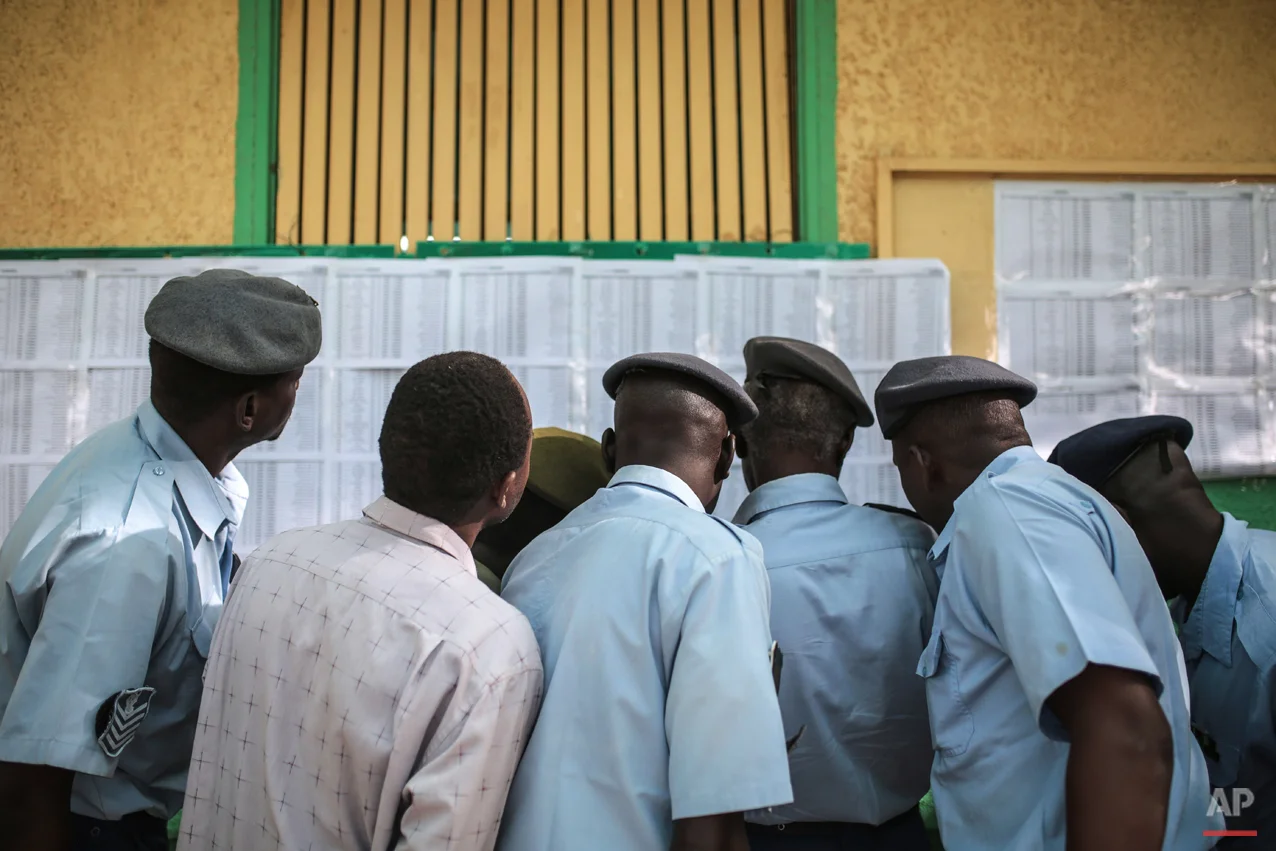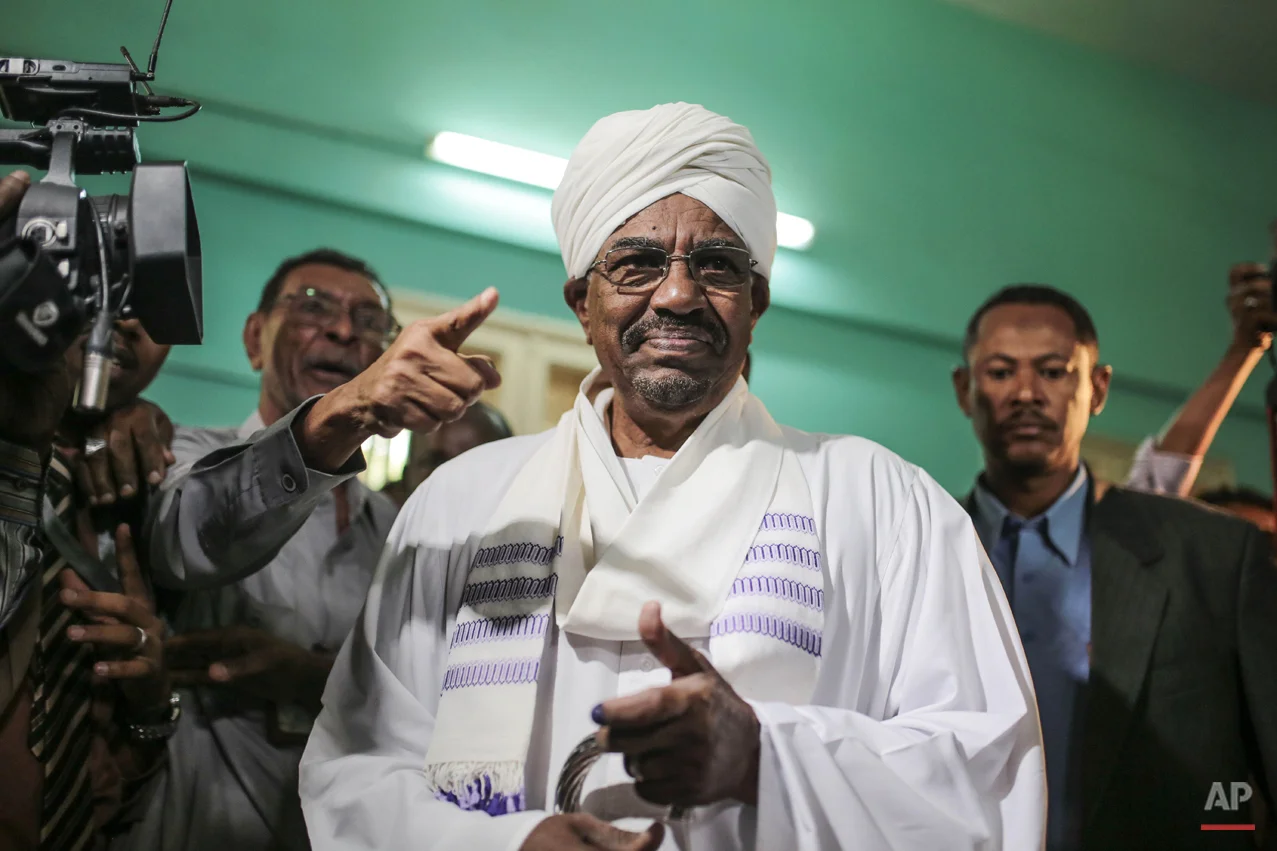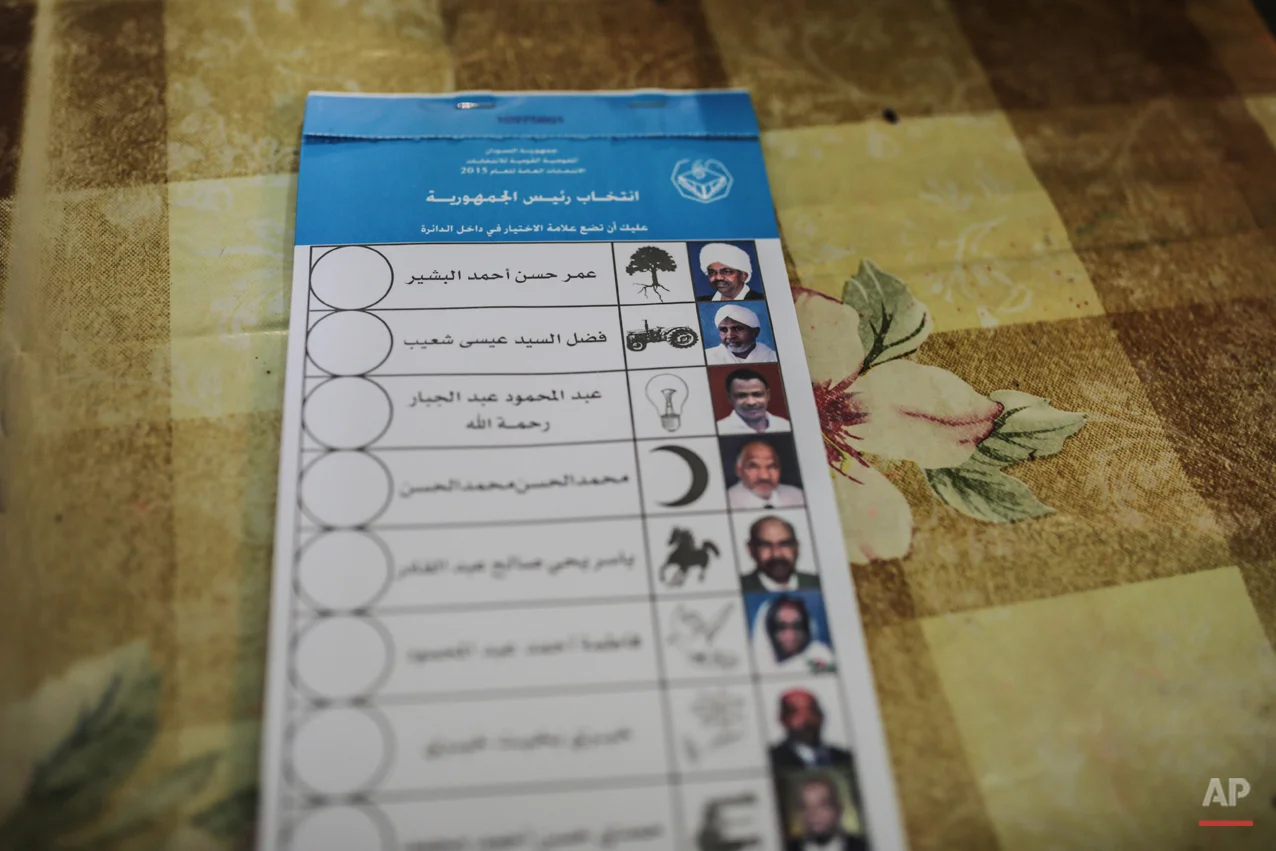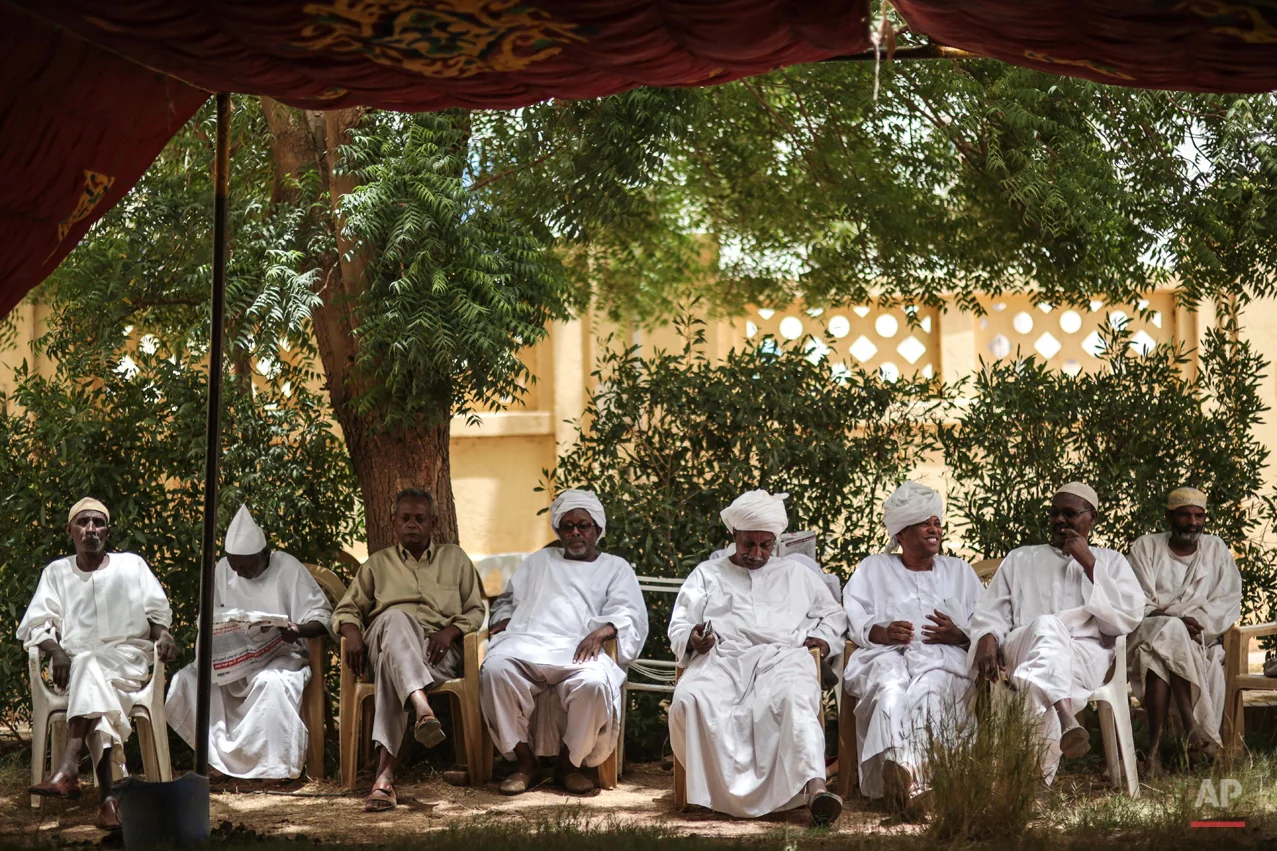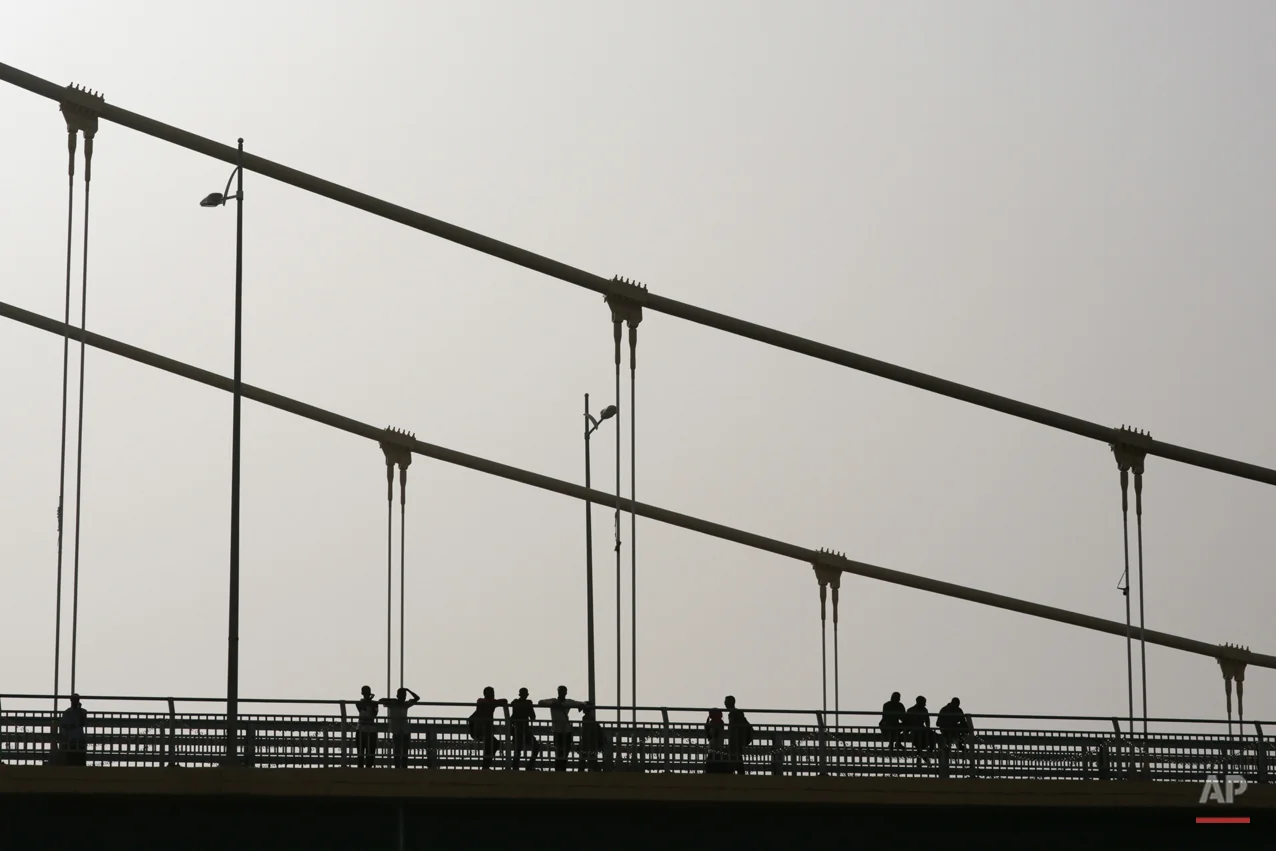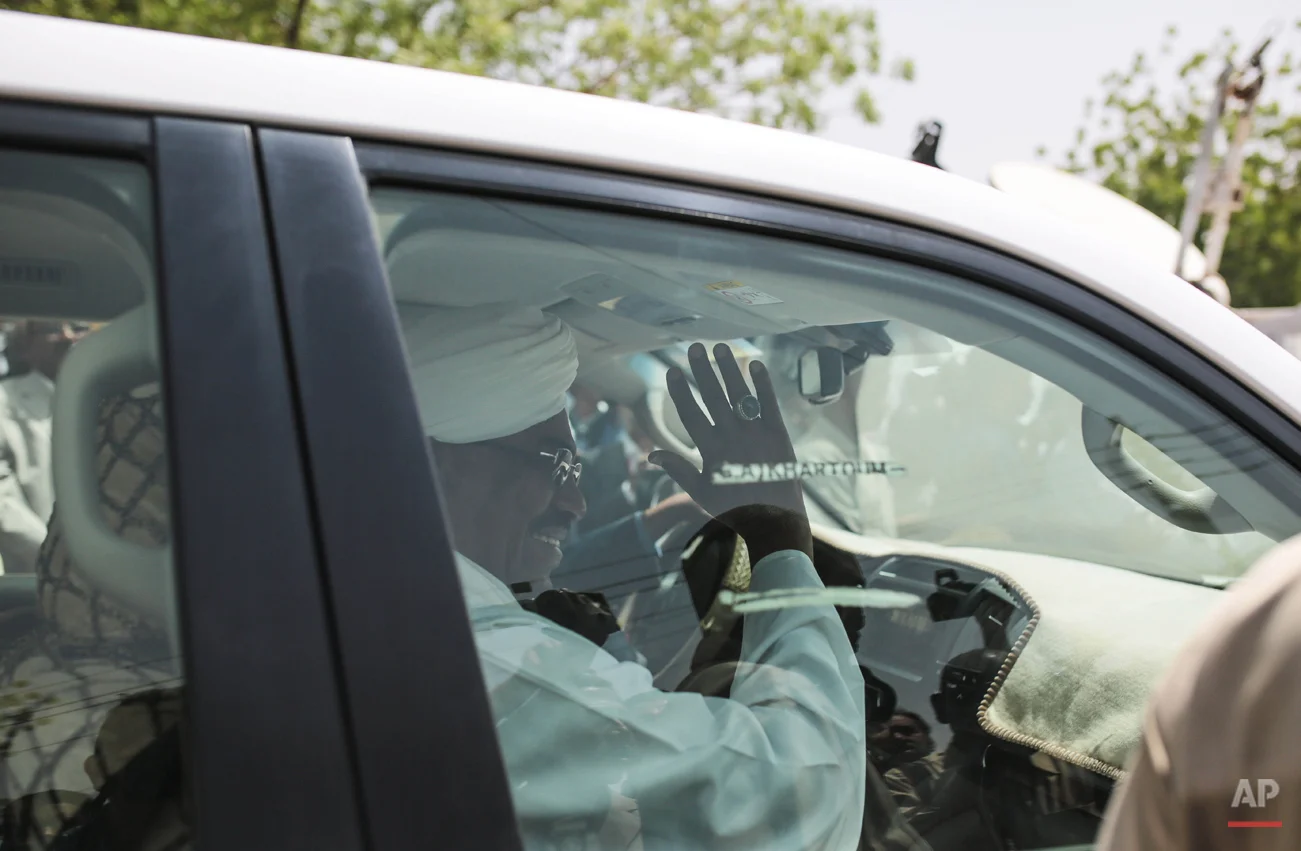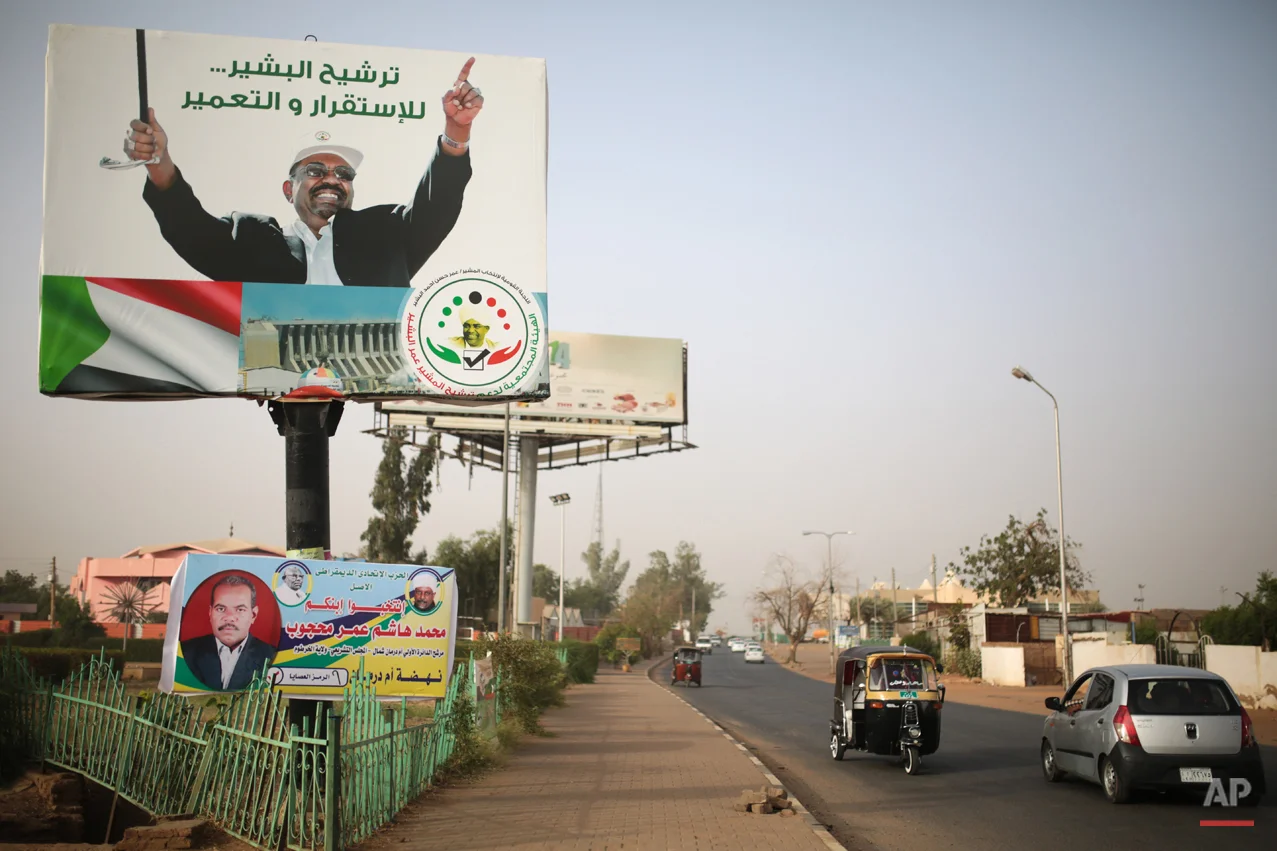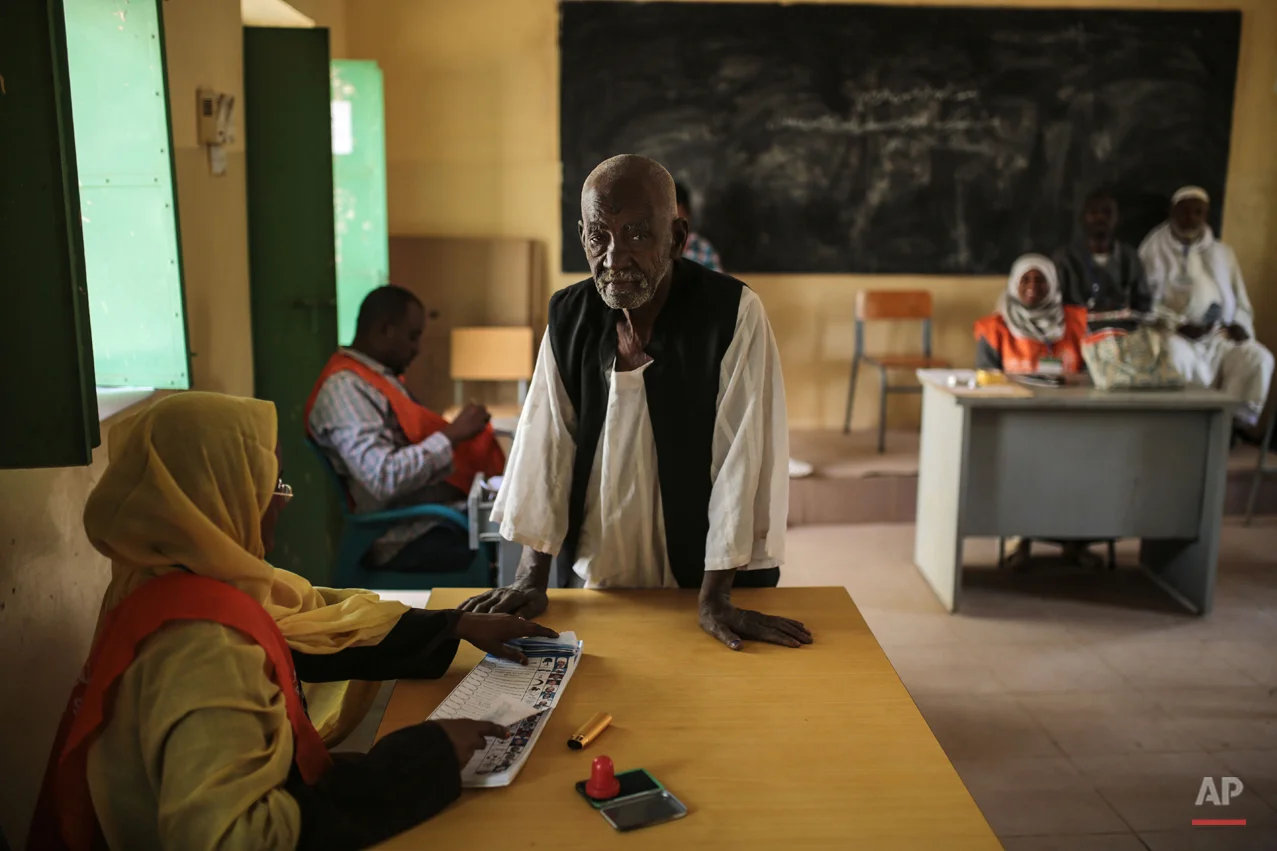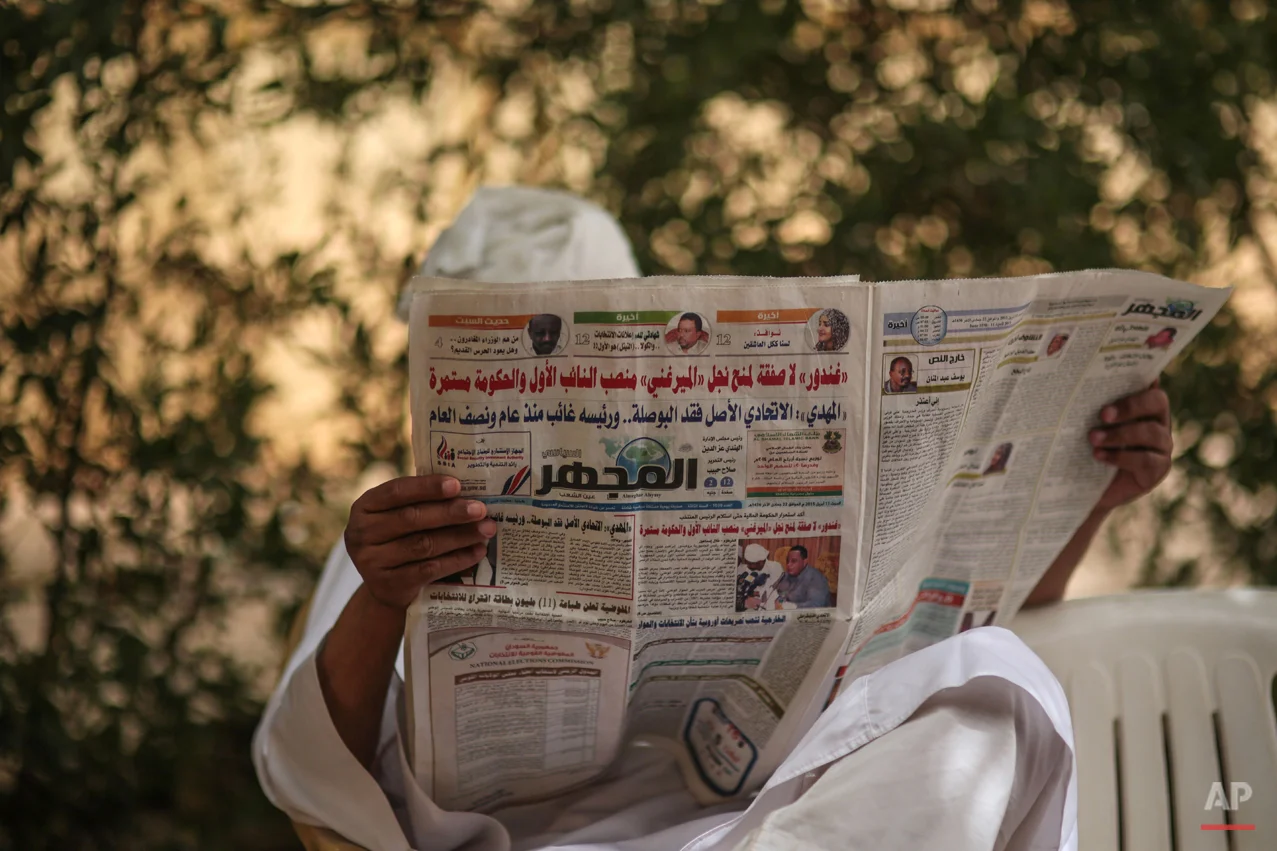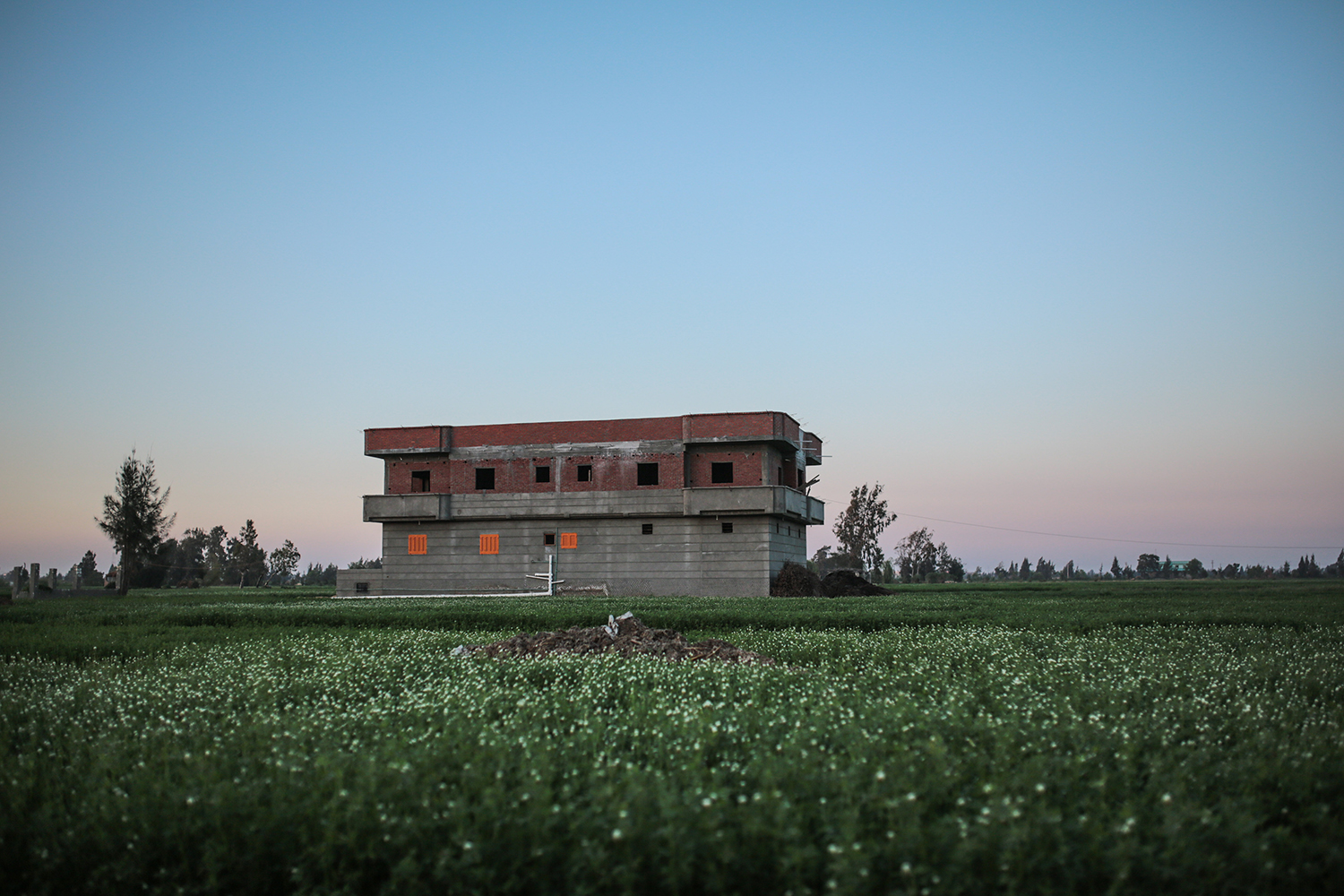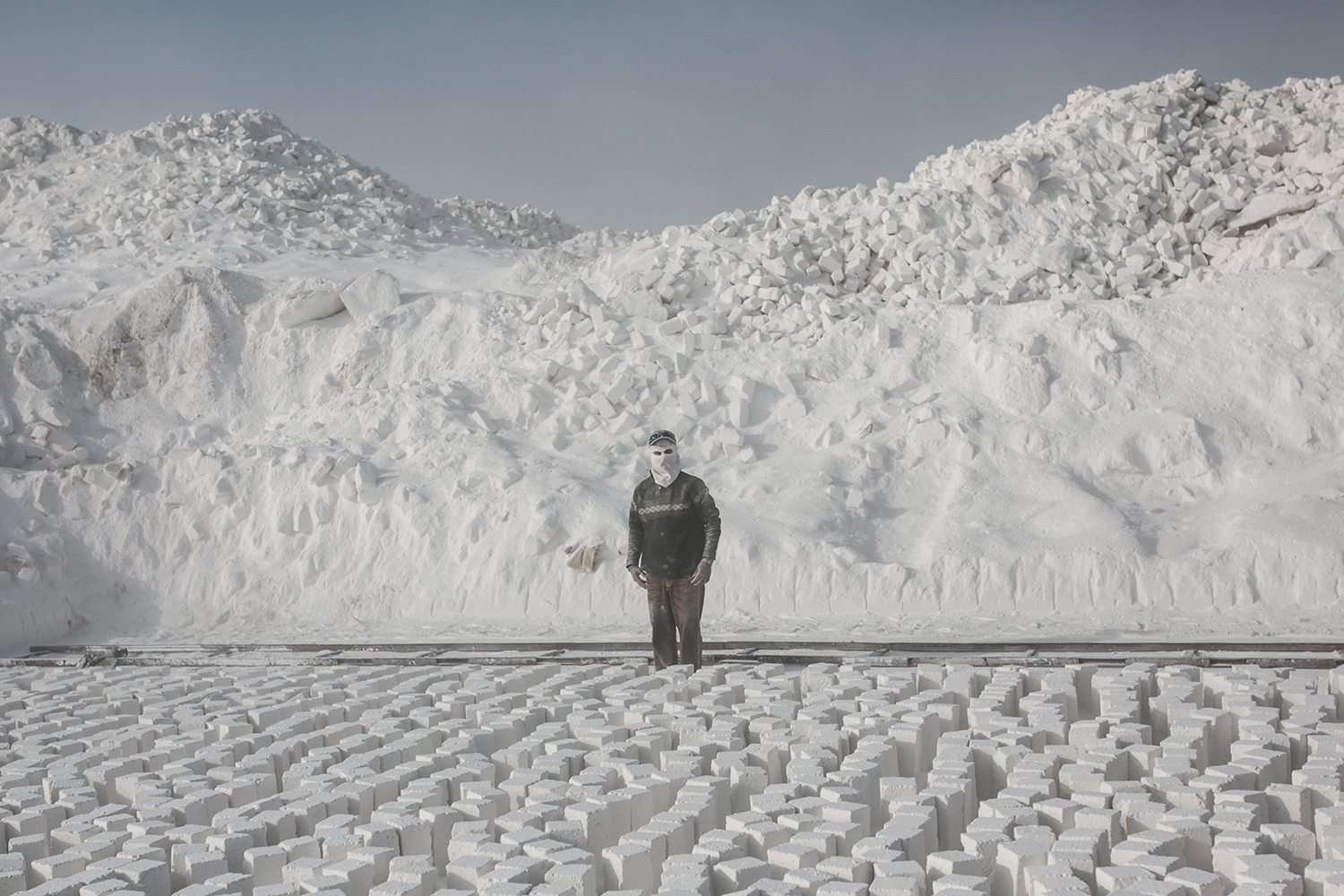Sudan elections
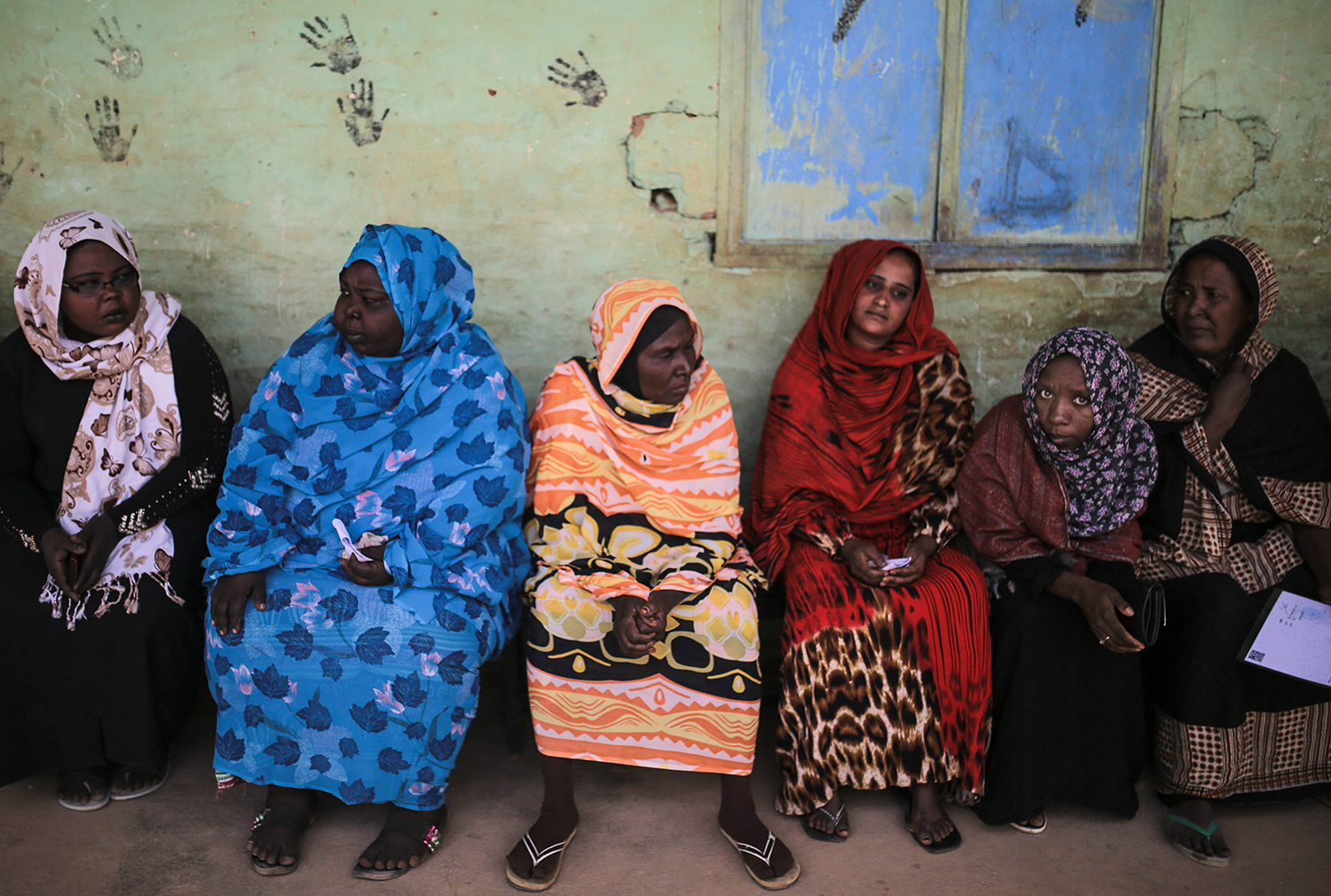
Sudan began voting Monday in an election expected to be won by President Omar al-Bashir, the world's only sitting leader wanted on genocide charges.
Voters slowly began arriving to polling places in Sudan's capital, Khartoum. Opposition parties, citing a lack of freedom of speech and assembly in the African country, are boycotting the vote, which includes electing candidates for the country's legislative council.
Voter lists hung on walls at polling stations. Some police officers and soldiers lined up with civilians to vote.
Ahmed Sulieman, a university professor, was one of a handful of voters at the polling place in St. Francis School in downtown Khartoum. He described voting as the only way for a "peaceful transition of power" in this country of 35 million people.
"Many countries are suffering amid power struggles," Sulieman said. "I am here for the sake of stability and safety."
Al-Bashir, dressed in white traditional robes, later arrived to the same polling place, surrounded by bodyguards. The 71-year-old leader cast his ballot and waved to supporters, saying "God is great" before leaving in a convoy.
Al-Bashir has ruled Sudan unchallenged for 25 years and presents himself as a symbol of stability. He survived the 2011 Arab Spring and his massive security apparatus has left the once-vibrant opposition a husk of its former self.
The 2011 secession of South Sudan, which ended Africa's longest-running civil war, deprived Khartoum of a third of its territory and population, and nearly 80 percent of its oil revenues. Smaller armed conflicts are currently raging in other parts of his country.
As long as he remains president, al-Bashir remains immune from being sent to the International Criminal Court on charges of orchestrating genocide during the Darfur conflict, which left 300,000 people dead and 2 million displaced.
Economic losses from South Sudan's succession forced al-Bashir to embark on austerity measures in 2013 that sparked the largest anti-government demonstrations of his rule. Security forces clamped down, killing some 200 people and arresting hundreds more.
Mohammed Hashim, a businessman who voted Monday, defended the crackdown, saying "detentions are meant to preserve the rights of others."
"The Arab Spring produced wars and failed in embodying people's dreams," he said. "The Arab Spring failed and what we have here is better."
Nearly 13 million people are registered to vote. Results are expected on April 27.
See more photos
Follow Mosa'ab Elshamy | Twitter: @mosaaberizing | Instagram: @mosaabelshamy
Text from the AP news story, Sudan begins voting in election al-Bashir expected to win, by Maggie Michael.
Spotlight is the blog of AP Images, the world’s largest collection of historical and contemporary photos. AP Images provides instant access to AP’s iconic photos and adds new content every minute of every day from every corner of the world, making it an essential source of photos and graphics for professional image buyers and commercial customers. Whether your needs are for editorial, commercial, or personal use, AP Images has the content and the expert sales team to fulfill your image requirements. Visit apimages.com to learn more.
Written content on this site is not created by the editorial department of AP, unless otherwise noted.
AP Images on Twitter | AP Images on Facebook | AP Images on Google+
Visual artist and Journalist

